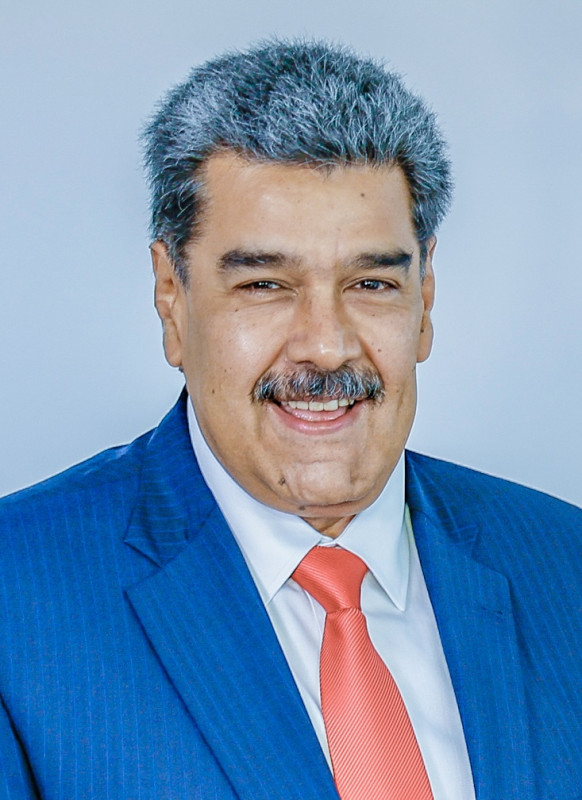Moldova, officially the Republic of Moldova, is a landlocked country in Eastern Europe, bordering Romania and Ukraine. It has a population of approximately 2.38 million and an area of 33,843 km2. The unrecognized breakaway state of Transnistria is located along its eastern border with Ukraine. Chișinău is the capital and largest city. Moldova operates as a unitary parliamentary representative democratic republic.
1917: Moldovans were influenced by Russian administrative control
During the period until 1917, Moldovans were influenced by Russian administrative control.
February 1918: Declaration of Independence
In February 1918, Bessarabia declared independence from the Russian Republic.
1918: Bessarabia Unites with Romania
In 1918, Bessarabia briefly became independent and then united with Romania.
1939: Radio Moldova Broadcasting
In 1939, Radio Moldova, the first publicly funded national radio broadcaster, began broadcasting from Chișinău.
1940: Soviet Union Reclaims Bessarabia
In 1940, the Soviet Union occupied Bessarabia during the Second World War, reclaiming it from Romania.
1940: Ion Creangă State Pedagogical University of Chișinău established
The Ion Creangă State Pedagogical University of Chișinău was established in 1940.
1944: Moldovans were influenced by Russian and Soviet administrative control
During the period from 1944 to 1989, Moldovans were influenced by Russian and Soviet administrative control.
1945: Nicolae Testemițanu State University of Medicine and Pharmacy established
The Nicolae Testemițanu State University of Medicine and Pharmacy was established in 1945.
1946: Moldova State University established
The Moldova State University was established in 1946 in Chișinău.
1961: Academy of Sciences of Moldova established
The Academy of Sciences of Moldova was established in 1961 in Chișinău.
January 1963: Lowest temperature ever recorded in Moldova
On 20 January 1963, the lowest temperature ever recorded in Moldova was −35.5 °C in Brătușeni, Edineț county.
1964: Technical University of Moldova established
The Technical University of Moldova was established in 1964.
1969: Earliest Wines in Mileștii Mici Collection
The earliest wines in the Mileștii Mici collection date back to 1969.
1972: Release of Lăutarii
In 1972, Lăutarii, a film written and directed by Emil Loteanu, was released.
1988: Nicolae Juravschi at Seoul Games
In 1988, Nicolae Juravschi represented the Soviet Union at the Seoul Games, winning two medals.
1990: Population Decline
According to Balkan Insight, Moldova's population has fallen by almost 33% since 1990.
1990: War of Transnistria
After the 1990-1992 War of Transnistria, Moldova sought a peaceful resolution to the conflict in the Transnistria region.
1990: Ecological Movement of Moldova Founded
In 1990, the Ecological Movement of Moldova was founded to restore Moldova's damaged natural environment.
1990: Transnistria Breakaway
In 1990, the strip of Moldovan territory on the east bank of the Dniester came under the de facto control of the breakaway government of Transnistria.
1991: Declaration of Independence
In 1991, Moldova declared independence from the USSR.
1991: Moldova declared Independence
Since declaring independence in 1991, Moldova has participated in UN peacekeeping missions in Liberia, Côte d'Ivoire, Sudan, and Georgia.
1991: Academy of Economic Studies of Moldova established
The Academy of Economic Studies of Moldova was established in 1991.
October 1992: Moldova ratified Treaty on Conventional Armed Forces in Europe
On 30 October 1992, Moldova ratified the Treaty on Conventional Armed Forces in Europe.
1992: War of Transnistria
After the 1990-1992 War of Transnistria, Moldova sought a peaceful resolution to the conflict in the Transnistria region.
1992: Membership in International Organizations
In 1992, Moldova became a member state of the United Nations, OSCE, the North Atlantic Cooperation Council, the World Bank, the International Monetary Fund, and the European Bank for Reconstruction and Development.
1992: Independence from the Soviet Union
In 1992, Moldova gained independence from the Soviet Union and began transitioning to a market economy.
1992: Transnistria ties with Russia
Since 1992, Transnistria has pursued close diplomatic, military, and economic ties with Russia, with more than a thousand Russian soldiers stationed in the region.
March 1994: Moldova joined NATO's Partnership for Peace
On 16 March 1994, Moldova joined the North Atlantic Treaty Organisation's Partnership for Peace.
October 1994: Accession to Nuclear Non-Proliferation Treaty
In October 1994 in Washington, D.C, Moldova acceded to the provisions of the nuclear Non-Proliferation Treaty.
1994: Participation in NATO's Partnership for Peace Programme
In 1994, Moldova became a participant in NATO's Partnership for Peace programme.
1994: Moldova's Olympic Debut
In 1994, Moldova made its Olympic debut at the Winter Olympics in Lillehammer.
1994: Adoption of the Constitution
In 1994, Moldova's constitution was adopted, establishing the country as a parliamentary republic.
1994: Constitution of Moldova
In 1994, the Constitution of Moldova was established, outlining the framework for the government of the country.
1994: First Match of Moldova National Football Team
In 1994, the Moldova national football team played its first match.
May 1995: Signed the CIS Interparliamentary Assembly Convention
In May 1995, Moldova signed the CIS Interparliamentary Assembly Convention.
July 1995: Admitted to the Council of Europe
In July 1995, Moldova was admitted to the Council of Europe.
1996: Joined the Francophonie
In 1996, Moldova joined the Francophonie.
1999: Access to Danube River
In 1999 Moldova acquired from Ukraine a 0.45 kilometer river frontage to the Danube, on the confluence of the Danube and Prut rivers.
2000: Constitutional Change regarding the presidential election
In 2000 a constitutional change regarding the presidential election was adopted
2001: Presidential election by the Moldovan Parliament
Between 2001 and 2015, the President of Moldova was elected by the Moldovan Parliament.
2001: Joined the World Trade Organization
In 2001, Moldova joined the World Trade Organization.
2002: Casa Mariorei Founded
In 2002 Casa Mariorei, a domestic violence shelter in Chișinău, was founded.
2002: Joined the International Criminal Court
In 2002, Moldova joined the International Criminal Court.
2002: Moldovan diaspora populations in Ukraine
In 2002, the Moldovan diaspora population in Ukraine was recorded at 258,600.
2003: O-Zone's Rise to Prominence
In 2003, the Moldovan band O-Zone rose to prominence with their hit song "Dragostea Din Tei," which topped numerous single charts.
2004: Increase in Rugby Union Players and Inaugural Moldova President's Cup
Since 2004, playing numbers in rugby union at all levels in Moldova have more than doubled. Also in 2004, the Moldova President's Cup cycling race was first held.
August 2005: Reintroduction of European Bison
In August 2005, three European bison (wisent) were reintroduced to Moldova from Białowieża Forest in Poland, arriving several days before Moldova's Independence Day.
2005: EU Action Plan and Border Assistance Mission
In 2005, Moldova and the European Union established an action plan to improve cooperation. The EU Border Assistance Mission to Moldova and Ukraine (EUBAM) was also established at the request of both countries.
2005: Moldova's Eurovision Debut and Zdob și Zdub's Performance
In 2005, Moldova began participating in the Eurovision Song Contest. Also in 2005, the band Zdob și Zdub represented Moldova in the Eurovision Song Contest, finishing sixth.
2005: Mileștii Mici Retains Guinness World Record
Since 2005, Mileștii Mici has retained the Guinness World Record for the largest wine cellar by number of bottles.
May 2007: Natalia Barbu at Eurovision 2007
In May 2007, Natalia Barbu represented Moldova at the Eurovision Song Contest 2007 in Helsinki with her song "Fight", finishing tenth.
July 2007: Highest temperature ever recorded in Moldova
On 21 July 2007, the highest temperature ever recorded in Moldova was 41.5 °C in Camenca.
2009: Joining Budapest Convention on Cybercrime
In 2009, Moldova joined the Budapest Convention on Cybercrime of the Council of Europe.
2009: Release of Wedding in Bessarabia
In 2009, Wedding in Bessarabia, a film co-produced by Romania, Moldova, and Luxembourg, was released.
February 2010: Polish Support for European Integration
According to a lending agreement signed in February 2010, Poland provided US$15 million as a component of its support for Moldova in its European integration efforts.
April 2010: Romanian Development Aid
In April 2010, Romania offered Moldova development aid worth €100 million and doubled scholarships for Moldovan students to 5,000.
September 2010: European Parliament Grant
In September 2010, the European Parliament approved a grant of €90 million to Moldova.
2010: SunStroke Project at Eurovision 2010
In 2010, SunStroke Project with Olia Tira represented Moldova at the Eurovision Song Contest with their song "Run Away".
2010: Moldovan diaspora populations in Russia
In 2010, the Moldovan diaspora population in Russia was recorded at 156,400.
2011: Zdob și Zdub at Eurovision 2011
In 2011, Zdob și Zdub represented Moldova at the Eurovision Song Contest for another time, finishing 12th.
2011: Islamic League of Moldova recognized
In 2011, the Islamic League of Moldova, an NGO, was recognized by the Moldovan Ministry of Justice as representing Moldovan Muslims.
March 2012: Joint Meeting of Romanian and Moldovan Governments
In March 2012, the first joint meeting of the Governments of Romania and Moldova concluded with several bilateral agreements.
2012: Security Zone Incident
In 2012, a security zone incident resulted in the death of a civilian, raising tensions with Russia.
2012: Russia canceled a 2012 decree
In February 2023, Russia canceled a 2012 decree underpinning Moldova's sovereignty.
2012: Border Police under Ministry of Internal Affairs
The Moldovan Border Police was a military branch until 2012 when it was put under the control of the Ministry of Internal Affairs.
August 2013: Pipeline Construction Begins
In August 2013, construction began on a pipeline between Moldova and Romania to break Russia's monopoly on Moldova's gas supplies.
November 2013: Drafting of Association Agreement with EU
In November 2013, the Association Agreement with the European Union was drafted in Vilnius.
November 29 2013: Association Agreement with the EU
On November 29, 2013, Moldova signed an association agreement with the European Union at a summit in Vilnius.
June 2014: Association Agreement with the European Union Signed
On June 27, 2014, Moldova signed the Association Agreement with the European Union in Brussels.
November 2014: US Donates Military Vehicles and Trailers
On 12 November 2014, the US donated 39 Humvees and 10 trailers, worth US$700,000, to the Moldovan Armed Forces.
2014: Moldovan census on religion
According to the 2014 Moldovan census, 90% of the country reported to be of the Eastern Orthodox Christian faith.
2014: Urban Population
According to the 2024 census, 46,4% of the population is urban. At the 2014 census, only 38,5% of the population was urban.
2014: Gagauzians voted in a referendum
In 2014, nearly 99 per cent of Gagauzians voted in a referendum to reject closer links with Europe in favor of joining the Russian-led Eurasian Economic Union.
2015: Romania allocates scholarships
As of 2015, Romania allocates 5,000 scholarships in high schools and universities for Moldovan students.
2015: Presidential election by the Moldovan Parliament
Between 2001 and 2015, the President of Moldova was elected by the Moldovan Parliament.
2015: Agricultural production
Between 2015 and 2022, agricultural production has almost doubled.
2015: Carla's Dreams Popularity
In 2015, Carla's Dreams, a musical project, gained popularity in Moldova.
2015: Military agreement with Romania
In 2015, Moldova signed a military agreement with Romania to strengthen regional security.
2015: GDP per capita
In 2015, Moldova's GDP per capita was $2,749 (USD).
2015: Radu Albot Wins Istanbul Open
In 2015, Radu Albot won the ATP doubles title at the Istanbul Open.
2015: Gagauzians voted for Irina Vlakh
In 2015, just over half of Gagauzians voted for the Russian-backed socialist candidate Irina Vlakh as governor.
March 2016: Constitutional Court Ruling on Presidential Election
On March 4, 2016, the Constitutional Court ruled that the 2000 constitutional change regarding presidential election was unconstitutional, reverting the election method to a direct vote.
December 2016: Parliament approved raising the retirement age
On 19 December 2016, the Moldovan parliament approved raising the retirement age to 63 years from 57 for women and 62 for men.
2016: Carla's Dreams International Success
In 2016, Carla's Dreams achieved international success with their song "Sub Pielea Mea," reaching top charts in several European countries.
2016: High Alcohol Consumption
In 2016, Moldova had one of the highest alcohol consumption rates per capita in the world, with 15.2 liters of pure alcohol consumed.
2016: Adoption of National Cyber Security Programme
Moldova adopted the National Cyber Security Programme for 2016–2020.
2016: Office for Democratic Institutions and Human Rights' 2016 recommendations on hate crimes
The Office for Democratic Institutions and Human Rights' made recommendations on hate crimes in 2016.
2017: Carla's Dreams New Album Release
In 2017, Carla's Dreams released their latest album.
2017: SunStroke Project at Eurovision 2017
In 2017, SunStroke Project featured again in the Eurovision entry "Hey Mama," achieving third place.
2018: Primary Energy Supply
In 2018, Moldova's primary energy supply consisted of approximately half natural gas, a quarter oil, and one-fifth solid biomass.
2018: Deaths Exceeding Live Births
Since 2018, the number of deaths has exceeded the levels of live-births in Moldova.
2019: 5G Testing Begins
5G testing began in Moldova in 2019.
2019: Fertility Rate
As of 2022, the average number of children per women of childbearing age was 1.69, well below the replacement rate of 2.1, as compared to 1.78 in 2019.
2019: Ilan Shor fled to Israel
In 2019, Ilan Șhor fled to Israel after being convicted of fraud and money-laundering and sentenced to 15 years in prison in absentia.
2019: Non-Resident Tourists
In 2019, Moldova had 31,000 non-resident tourists.
2019: Forest Landscape Integrity Index
In 2019, Moldova had a Forest Landscape Integrity Index mean score of 2.2/10, ranking it 158th globally out of 172 countries.
2019: Health care spending
In 2019, Moldova spent 4.9% of its annual GDP on health care, which has increased to 6% in 2022.
2019: Radu Albot Wins Delray Beach Open
In 2019, Radu Albot won the ATP singles title at the Delray Beach Open.
2019: Moldovan diaspora populations in Italy and France
In 2019, the Moldovan diaspora populations in Italy and France were recorded at 188,923 and 26,300, respectively.
2019: Leading causes of death
In 2019, the leading causes of death in Moldova were Ischaemic heart disease, strokes, hypertensive heart disease, cirrhosis of the liver, and trachea, bronchus, and lung cancers.
2019: Total fertility rate, births and deaths per 1,000 inhabitants
In 2019, the total fertility rate per woman was 1.78, the number of live births was 12.2 per 1,000 inhabitants, and the number of deaths was 13.7 per 1,000 inhabitants.
November 2020: Maia Sandu Elected President
In November 2020, Maia Sandu was elected as the new president of Moldova.
2020: Maia Sandu Elected President
In 2020, Maia Sandu was elected president of Moldova.
2020: Transparency International and Reporters Without Borders ranking in 2020
In 2020, Moldova's Corruption Perceptions Index was 34 points according to Transparency International, and Moldova's Press Freedom Index ranking was 89th according to Reporters Without Borders.
2020: Press Freedom Index Ranking
In 2020, Reporters Without Borders ranked Moldova 89th in its Press Freedom Index.
2020: Net emigration fell to a low
In 2020, net emigration in Moldova fell to a low of 7,000.
2020: Moldovan diaspora populations in Romania
In 2020, the Moldovan diaspora population in Romania was recorded at 285,000.
2020: Government Resignation
In 2020, the prime minister and government resigned, and the president and parliament failed to form a new government.
2020: Infant mortality rate
Infant mortality per 1,000 live-births was 9.0 in 2020.
2020: Adoption of National Cyber Security Programme
Moldova adopted the National Cyber Security Programme for 2016–2020.
July 2021: Early Parliamentary Elections
In July 2021, early parliamentary elections were held in Moldova after the government resigned and a new one could not be formed.
2021: Agriculture in Moldova
As of 2021, agriculture made up 12% of Moldova's overall exports and 21% of overall employment.
2021: Hate Crimes
In 2021, 8 hate crimes were recorded, 7 of which reached a successful conviction, with one going to prosecution but without a conviction.
2021: GDP Growth Rebound
In 2021, Moldova experienced a rebound in annual GDP growth to 13.9% following the COVID-19 pandemic.
2021: Shift in Wine Export Market
In 2021, Russia accounted for only 10% of Moldovan wine exports, a decrease from 80% in the early 2000s, while exports to European countries exceeded 120 million liters.
2021: Zdob și Zdub at Eurovision
In 2021, Zdob și Zdub represented Moldova again at Eurovision, achieving a similar result to their 2005 performance.
2021: Russian FSB Plan to Destabilize Moldova
In 2021, a document by Russia's FSB's Directorate for Cross-Border Cooperation outlined a 10-year plan to destabilize Moldova.
2021: Moldovan diaspora populations in Canada
In 2021, the Moldovan diaspora population in Canada was recorded at 20,470.
2021: Digitisation laboratory equipped
In 2021, the United States assisted Moldova by equipping a digitisation laboratory to restore and preserve its archive feature and documentary films.
2021: Deaths Exceeding Live Births
Since 2018, the number of deaths has exceeded the levels of live-births in Moldova, though the gap has been reduced since 2021.
2021: Overall number of deaths
The overall number of deaths was higher than in 2022.
March 2022: Moldova signed EU membership application
In March 2022, Moldova formally signed the application for membership to the European Union.
May 2022: Incitement to religious and ethnic hatred made illegal
In May 2022, incitement to religious and ethnic hatred was made illegal in Moldova.
June 2022: Candidate Status for EU Membership
In June 2022, Moldova was granted candidate status for membership in the European Union.
June 2022: Amendments to the Criminal Code adopted
Office for Democratic Institutions and Human Rights' 2016 recommendations on hate crimes were "largely reflected in amendments to the Criminal Code adopted by the Moldovan Parliament and published on 3 June 2022".
June 2022: Moldova granted EU candidate status
On June 23, 2022, EU leaders officially granted Moldova candidate status for European Union membership.
July 2022: Internet Users Statistics
By July 2022, Moldova had 3 million internet users, representing approximately 76% of the population.
July 2022: UNDP Film Preservation Initiative
In July 2022, the United Nations Development Programme announced its plan to transfer over 1,600 films from the Moldova-Film archive using state-of-the-art equipment for preservation.
October 2022: Defense Minister claims outdated military equipment
In October 2022, Defense Minister Anatolie Nosatii claimed that 90 percent of the country's military equipment is outdated and of Soviet origin, dating back to the 1960s and 1980s.
October 2022: EU Welcomed Ratification of Istanbul Convention
In a meeting with the European Union in October 2022, EU representatives welcomed positive developments in Moldova such as the ratification of the Istanbul Convention.
2022: Survey during the Russian invasion of Ukraine
A 2022 survey during the Russian invasion of Ukraine indicated that only 11% of Romania's population supports an immediate union with Moldova.
2022: Amnesty International's Report
According to Amnesty International's 2022/23 report, "No visible progress was made in reducing instances of torture and other ill-treatment in detention.
2022: Transparency International and Reporters Without Borders
According to Transparency International, Moldova's Corruption Perceptions Index improved to 39 points in 2022 from 34 in 2020. Reporters Without Borders improved Moldova's Press Freedom Index ranking from 89th in 2020 to 40th in 2022.
2022: Human Rights Report of the United States Department of State release
According to the Human Rights Report of the United States Department of State, released in 2022, authorities investigated reports of human rights abuses and corruption committed by officials.
2022: Healthcare data
According to the most recent 2022 official data, per 10,000 inhabitants there are 48.4 doctors and 91 units of average medical staff in Moldova.
2022: Invasion of Ukraine
As a result of the 2022 Russian invasion of Ukraine, the EU created a Partnership Mission in Moldova.
2022: Life expectancy, fertility, and birth/death rates
As of 2022 the average life expectancy in Moldova was 71.5 years. The total fertility rate per woman in 2022 was 1.69. There were 10.6 live births per 1,000 inhabitants in 2022, and 14.2 deaths per 1,000 inhabitants.
2022: Population Density and Life Expectancy
As of 2022, Moldova's population density is 82.8 inhabitants per 1 km, and average life expectancy was 71.5 years (67.2 for males, and 75.7 for females).
2022: US Department of State estimates of non-Orthodox population
As of 2022, the United States Department of State estimates that approximately 7% of Moldova's population identifies with no religion.
2022: Education statistics
As of the academic year 2022/23, Moldova had 1,218 primary and secondary schools, 90 vocational schools, 21 higher education institutions, and 12 private higher education institutions, with a total of 437,000 pupils and students.
2022: Agricultural production
Between 2015 and 2022, agricultural production has almost doubled.
2022: Net emigration increased
By 2022, net emigration in Moldova increased to 43,000 more people leaving the country than arriving.
2022: Importing Electricity from Romania Begins
In 2022, Moldova began importing electricity from Romania, eliminating the need to buy electricity generated from Russian gas in Transnistria.
2022: Emigration and Fertility Rates
In 2022, Moldova experienced high levels of emigration, with 43,000 more people leaving the country than arriving, and a low fertility rate of 1.69 children per woman.
2022: EU Membership Application
In 2022, Moldova submitted a formal application for membership in the European Union.
2022: Moldovan diaspora populations in Germany
In 2022, the Moldovan diaspora population in Germany was recorded at 122,000.
2022: Broadcasting Licenses Removal
In 2022, the Moldovan government removed broadcasting licenses from six television stations for spreading pro-Russian propaganda and disinformation.
2022: Overall number of deaths
In 2022, the overall number of deaths in Moldova fell by 20.5% compared to 2021, with the major causes being diseases of the circulatory system (58%) and cancerous tumours (15.8%).
2022: Increase in Foreign Visitors
In the first quarter of 2022, Moldova experienced an increase in foreign visitors compared to pre-pandemic levels, with 36,100 non-resident tourists.
February 2023: Russia Cancels Decree on Moldova's Sovereignty
In February 2023, Russia canceled a 2012 decree underpinning Moldova's sovereignty.
February 2023: Law on Criminal Penalties for Separatism
On February 2, 2023, Moldova passed a law introducing criminal penalties for separatism, including prison terms, and penalties for financing and inciting separatism, plotting against Moldova, and collecting and stealing information that could harm the country's sovereignty, independence and integrity.
March 2023: Mission to Enhance Moldova's Security Sector
A memorandum dated 29 March 2023, stated that the EU mission aims at "enhancing the resilience of Moldova's security sector in the area of crisis management as well as enhancing resilience to hybrid threats, including cybersecurity, and countering foreign information manipulation and interference".
March 2023: Romanian is the official language of Moldova
As of March 2023, Romanian became the only official language of Moldova, with all references to the Moldovan language in the constitution and legal documents being amended to refer to Romanian.
April 2023: Moldova Needs $275 million to Modernise Armed Forces
In April 2023, Valeriu Mija claimed that Moldova needed $275 million to modernise its armed forces.
April 2023: EU Partnership Mission in Moldova
On April 24, 2023, the European Union established a Partnership Mission in Moldova through its Common Security and Defence Policy.
May 2023: Suspension of Participation in CIS
In May 2023, the Moldovan government announced the immediate suspension of its participation in the Commonwealth of Independent States.
June 2023: Poland sent military equipment to Moldova
In June 2023, Poland sent a transport of military equipment worth €8 million (including drones, laptops, explosive ordnance disposal equipment, and ultrasound equipment) to the Moldovan police to increase the country's internal security.
June 2023: EU Support and Investment Programme for Moldova
In June 2023, the European Union announced a €1.6 billion support and investment programme for Moldova, confirmed reductions in mobile data and voice roaming charges, and announced Moldova joining the EU's joint gas purchase platform.
June 2023: Pride Parade in Chișinău
On 18 June 2023, some 500 LGBT activists and supporters held a Pride parade in the capital city of Chișinău.
June 2023: Moldova No Longer Imports Oil or Natural Gas from Russia
As of June 2023, Moldova no longer imports oil or natural gas from Russia and has been granted access to the European Union's joint gas purchasing platform.
July 2023: Evghenia Guțul thanked Ilan Shor
In July 2023, Evghenia Guțul thanked the fugitive Moldovan oligarch Ilan Shor for his personal and financial support.
July 2023: Diplomatic Tensions with Russia
In July 2023, Moldova experienced heightened diplomatic tensions with Russia, including summoning the Russian ambassador and expelling Russian diplomats due to alleged hostile actions.
July 2023: Legislation Removing CIS Membership
In July 2023, Moldova passed legislation removing it from membership in the CIS Interparliamentary Assembly.
July 2023: Creation of Seed Libraries Network
In July 2023, a network of 20 seed libraries was created across Moldova to improve agricultural biodiversity and climate resilience.
October 2023: Broadcasting Bans in Moldova
In October 2023, Orizont TV, ITV, Prime, Publika TV, Canal 2 and Canal 3 were banned for undermining local elections, and several Russian media outlets, including TASS and Interfax, were blocked.
December 2023: Accession Talks to the EU began
On December 13, 2023, Accession talks to the EU began.
December 2023: Formal accession talks began
On December 13, 2023, formal accession talks for Moldova to join the European Union began.
2023: Fast Internet in Moldova
As of 2023, Internet in Moldova is among the fastest and least expensive in the world.
2023: Freedom House rank
In 2023 Freedom House ranked Moldova as a 'partly free' country with a score of 62/100.
2023: Human Development Index Ranking
In 2023, Moldova ranked 86th in the world in terms of the Human Development Index.
2023: Improved Press Freedom Ranking
In 2023, Moldova's Press Freedom Index ranking improved to 28th, due to government legal reforms.
2023: IMF Predicts Economic Improvement
In 2023, the IMF predicted that Moldova's economy would improve from a 1.5% contraction to a growth of 1.5%.
January 2024: Population
As of 1 January 2024, Moldova has an estimated population of approximately 2,423,300.
November 2024: Maia Sandu Re-elected President
In November 2024 presidential election, President Maia Sandu was re-elected with 55% of the vote.
November 2024: EU Referendum and Presidential Election
In November 2024, Moldova's referendum on joining the EU saw a narrow 50.17% "yes" vote amid allegations of external interference, while the simultaneous presidential election resulted in a run-off between Maia Sandu, who received 42% of the vote, and Alexandr Stoianoglo, who received 26%.
2024: EU Referendum planned for autumn 2024
A referendum on joining the EU is planned for autumn 2024. Residents of Transnistria will be free to travel into other areas of Moldova to vote.
2024: Ethnic Composition
According to the 2024 national census, ethnic Moldovans made up approximately 77% of the country's population, with Romanians, Ukrainians, Gagauzians, and Russians being the most substantial ethnic minorities.
2024: Global Innovation Index Ranking
As of 2024, Moldova ranks 68th in the world on the Global Innovation Index.
2024: 5G Rollout Consideration
Moldova is considering a bid to begin rolling out 5G in 2024.
2024: National Census
The most recent national census of Moldova was carried out in 2024 (not including Transnistria).
2024: Results of the 2024 census
The results of the 2024 census showed the following languages spoken as mother tongue: Moldovan (49.2%), Romanian (31.3%), Russian (11.1%), Gagauz (3.8%), Ukrainian (2.9%), Bulgarian (1.2%), Romani (0.3), and others (0.2%).
January 2025: New Cybersecurity Legislation
New cybersecurity legislation in Moldova, partially drafted by the Moldova Cybersecurity Rapid Assistance Unit, will go into effect on 1 January 2025.
September 2025: BBC Investigation on Russian Interference
In September 2025, a BBC investigation revealed a secret Russian-backed network attempting to disrupt the election in Moldova, using fake news spread through platforms like Telegram, TikTok and Facebook, possibly created using ChatGPT.
2025: Improved Connectivity Completion
Improved connectivity between Moldova and Romania is expected to be completed by 2025.
2028: Retirement age in effect
The retirement age will be fully in effect in 2028.
2030: Target Date for EU Accession
Moldova has set 2030 as the target date for EU Accession.
2030: EU Accession by 2030
The United Nations Development Programme is assisting Moldova in implementing reforms for full EU accession by 2030.
2035: Projected Population
By 2035, Moldova's total population may be half what it was in 1990.
Mentioned in this timeline

Starlink is a satellite internet constellation operated by Starlink Services...
Ukraine is a large country in Eastern Europe second in...
The Union of Soviet Socialist Republics USSR existed from to...

Washington D C is the capital city and federal district...
Germany officially the Federal Republic of Germany is a Western...

Inflation in economics signifies an increase in the average price...
Trending

Jay Cutler is a retired American football quarterback who played seasons in the NFL He is best known for his...

Kevin Byard is an American professional football safety currently playing for the Chicago Bears He was drafted by the Tennessee...

Quinyon Mitchell is an American professional football cornerback currently playing for the Philadelphia Eagles He was drafted nd overall in...
8 months ago Galatasaray vs Kayserispor: Match Details, Championship Hopes, and Okan Buruk's Strategy

7 months ago Carrie Coon Discusses Challenges Talking to Trump Supporters and Her 'White Lotus' Role.
2 months ago CBS Saturday Morning co-hosts Miller and Jacobson to depart amid Paramount Television Studios shakeup.
Popular

XXXTentacion born Jahseh Dwayne Ricardo Onfroy was a controversial yet...

Carson Beck is an American college football quarterback currently playing...

Stranger Things created by the Duffer Brothers is a popular...
Curt Cignetti is an American college football coach currently the...

Marco Rubio is an American politician attorney and diplomat He...

Nicol s Maduro is a Venezuelan politician who has served...